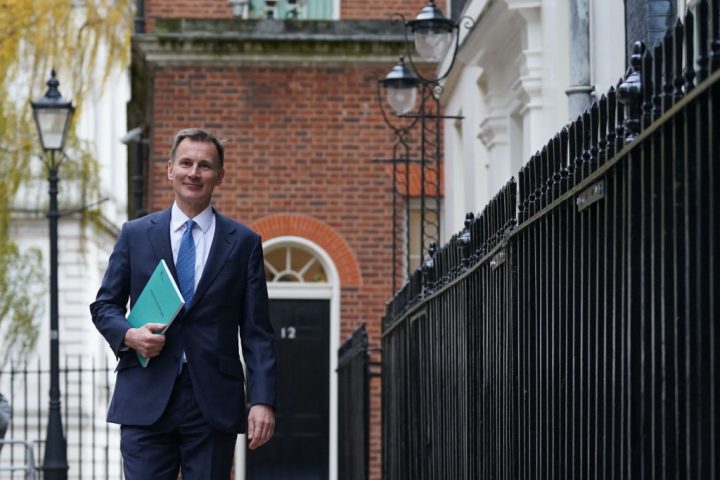This Budget is probably Jeremy Hunt’s last fiscal event before the election, and the Chancellor will want to at least set a fair wind for the Conservatives to head into polling day. That means giving voters a sense that sticking with the Tories is the safer option, offering them giveaways on tax and the sense that more tax cuts might be to come – as well as avoiding the sort of post-Budget rows that can define a government in all the wrong ways.
Hunt is expected to cut National Insurance by a further two percentage points, on top of the 2 point cut he made in the autumn. This is cheaper than cutting income tax, but has the disadvantage of being a tax that voters don’t fully understand or acknowledge in the same way. Tory MPs have already complained that repeating a cut the party didn’t get any thanks for in the autumn is a ‘definition of insanity’ approach. Others wonder whether polls showing voters are more concerned about the state of public services suggest the electorate isn’t as interested as the party is in lowering the tax burden. Given the national insurance cut has already emerged, it is unlikely to be the headline announcement today, though, with some in the party wondering if Hunt will also cut income tax after all – or if he’s keeping that for the party’s campaign manifesto.
Given the national insurance cut has already emerged, it is unlikely to be the headline announcement
Hunt could also abolish inheritance tax, which would mean he would have to find £7 billion from elsewhere and face accusations of favouring the wealthy – even from his own party. He has also been rumoured to be considering scrapping non-dom tax status. There are political arguments in favour of this approach, in that it makes it harder for Labour to attack Rishi Sunak’s wealth (his wife Akshata is a non-dom but has opted to pay UK tax on her overseas income following revelations about her tax status). But the Institute for Fiscal Studies has warned that scrapping the status could backfire, as these highly mobile, wealthy individuals could easily take their wealth and businesses elsewhere.
There’s also the question of how to pay for these tax cuts. The overnight briefing has suggested that local authorities will be told to cut back spending on consultants and diversity plans, but neither will fund the tax cut – nor plug the black hole in many local authorities. Some councils are already effectively bankrupt, with Birmingham last night approving the biggest cuts to its services in history. Some councils, like Woking, have made manifestly daft decisions which have contributed to their financial failure. But the Local Government Association has long been warning of a £3 billion funding gap for all local authorities in England.
Mind you, the warnings about council funding have been going on for almost as long as successive chancellors have been freezing or cutting fuel duty in response to backbench campaigns. Hunt is expected to extend the 5p cut in fuel duty, which is for now due to go up at the end of March. The current onus for this policy is that the Tories are keen to be the party of the motorist in the coming election.
They also want to be the party of homeowners, a rapidly ageing group given the housing crisis. This is one reason Hunt has been reportedly considering a 99 per cent mortgage scheme. That policy doesn’t solve the supply problem, which is very much in the category of things the party could have fixed during their 14 years in government but didn’t. In reality, there’s not much a party can do in its final Budget before an election to change the weather it has spent more than a decade making.







Comments